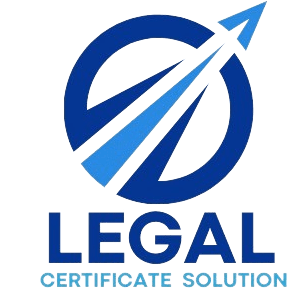How is ISO Certification Helpful for the Manufacturing Industry?
ISO certification is essential for all industries to demonstrate their commitment to providing world-class, effective, and efficient products and services. In the manufacturing sector, ISO certification is crucial for economic development. Manufacturing industries are key to reducing poverty and unemployment, leading to a better lifestyle for citizens.
The quality of manufactured goods, the well-being of the workforce, environmental consciousness, and process efficiency contribute to a nation’s reputation. Consequently, the public expects high standards of quality, safety, and efficiency from products and services.
Encouraging the manufacturing sector to achieve internationally recognized ISO standards ensures that these expectations are met. ISO certification is immensely helpful for manufacturing industries such as steel, paper, rubber, cement, lime, plaster, tobacco, wood, and plastic. It provides an effective management system that enhances quality and efficiency, benefiting the entire sector.
Why Do Manufacturing Industries Need ISO Certification?
ISO certifications are crucial for manufacturing industries to develop efficient and effective management systems. They help manufacturers assess and identify risks related to their products or services and implement measures to mitigate these risks. ISO certification ensures compliance with high-standard manufacturing quality management systems and promotes cooperation and efficiency across the manufacturing network. Therefore, ISO certifications are essential for all types of manufacturing industries, including steel, paper, rubber, cement, lime, plaster, tobacco, wood, and plastic.
- The need for ISO certifications in the manufacturing industry is evident at every stage of operations. Key points include:
- ISO certifications in the railway sector enhance international recognition and boost global reputation.
- ISO standards help manufacturing sectors improve organizational revenues and maximize profits.
- ISO certifications apply to nearly all manufacturing units, regardless of size, type, or process.
- ISO certification elevates a company’s reputation by demonstrating a commitment to internationally recognized standards of excellence.
Benefits of ISO Certification for Manufacturing Industry
ISO certification offers numerous advantages for manufacturing industries:
Improved Quality Control
ISO standards emphasize consistent product quality. By adhering to these standards, manufacturers can reduce defects and ensure products meet customer expectations.
Enhanced Efficiency
ISO certification promotes streamlined processes, reducing waste and improving productivity. Efficient operations lead to cost savings and better resource management.
Increased Customer Satisfaction
With a focus on quality and continuous improvement, ISO-certified companies can deliver better products and services. This enhances customer trust and loyalty.
Market Competitiveness
ISO certification sets a company apart from competitors. It is often a prerequisite for participating in tenders and entering new markets.
Regulatory Compliance
ISO standards help companies comply with legal and regulatory requirements. This reduces the risk of legal issues and enhances operational transparency.
Which Standards or ISO Certificates Are Required for Manufacturing Industries?
Various ISO standards apply to the manufacturing sector. Some of the most relevant include:
ISO 9001 Standard
ISO 9001 is an international standard that supports the establishment of a Quality Management System (QMS) within organizations. It aids in evaluating quality risks and developing appropriate quality controls. Achieving ISO 9001 certification assures the quality of manufactured products and verifies that vendors provide high-quality raw materials for production.
ISO 14001 Standard
ISO 14001 is a globally recognized standard designed to address environmental concerns related to climate change and environmental degradation. It encourages organizations to evaluate their activities to minimize their negative impact on the environment.
ISO 45001 Standard
ISO 45001 provides a framework for implementing an Occupational Health and Safety Management System (OHSMS) within organizations. This standard is crucial for industries with high-risk environments, enabling them to manage safety and employee wellbeing effectively.
ISO 22301 Standard
ISO 22301 is an internationally acknowledged standard for Business Continuity Management Systems (BCMS). It helps organizations prepare for and manage unforeseen events like natural disasters, pandemics, or cyber-attacks, minimizing operational downtime and impact.
ISO 50001 Standard
ISO 50001 is the global standard for Energy Management Systems (EnMS). It guides organizations in optimizing their energy use, thereby reducing their carbon footprint. This standard is especially relevant for manufacturing industries, which often have significant energy consumption.
ISO Certification Process for Manufacturing Industry
Obtaining ISO certification involves several steps:
- Application & contract
- Audit team Assignment
- Document view
- Certification Audit Independent review
- Notification of Certification
- Surveillance audit
- Re-Assessment
The certification process goes further. click here to view the next steps to the ISO certification Process.
ISO certification is indispensable for manufacturing industries. It enhances quality, efficiency, and customer satisfaction while ensuring compliance with regulatory standards. By following a structured certification process, companies can reap significant benefits, including improved market competitiveness and operational excellence.


